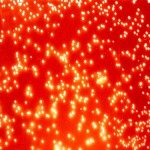Link to Pubmed [PMID] – 26613786
Link to DOI – 10.1093/molbev/msv280
Mol Biol Evol 2016 Apr; 33(4): 898-914
In the context of the great concern about the impact of human activities on the environment, we studied 403 commensal Escherichia coli/Escherichia clade strains isolated from several animal and human populations that have variable contacts to one another. Multilocus sequence typing (MLST) showed a decrease of diversity 1) in strains isolated from animals that had an increasing contact with humans and 2) in all strains that had increased antimicrobial resistance. A specific B1 phylogroup clonal complex (CC87, Institut Pasteur schema nomenclature) of animal origin was identified and characterized as being responsible for the increased antimicrobial resistance prevalence observed in strains from the environments with a high human-mediated antimicrobial pressure. CC87 strains have a high capacity of acquiring and disseminating resistance genes with specific metabolic and genetic determinants as demonstrated by high-throughput sequencing and phenotyping. They are good mouse gut colonizers but are not virulent. Our data confirm the predominant role of human activities in the emergence of antimicrobial resistance in the environmental bacterial strains and unveil a particular E. coli clonal complex of animal origin capable of spreading antimicrobial resistance to other members of microbial communities.



